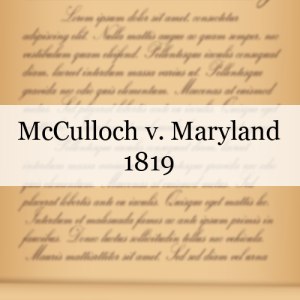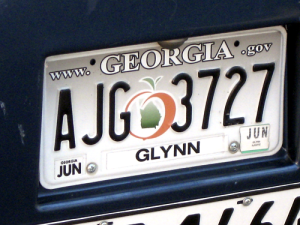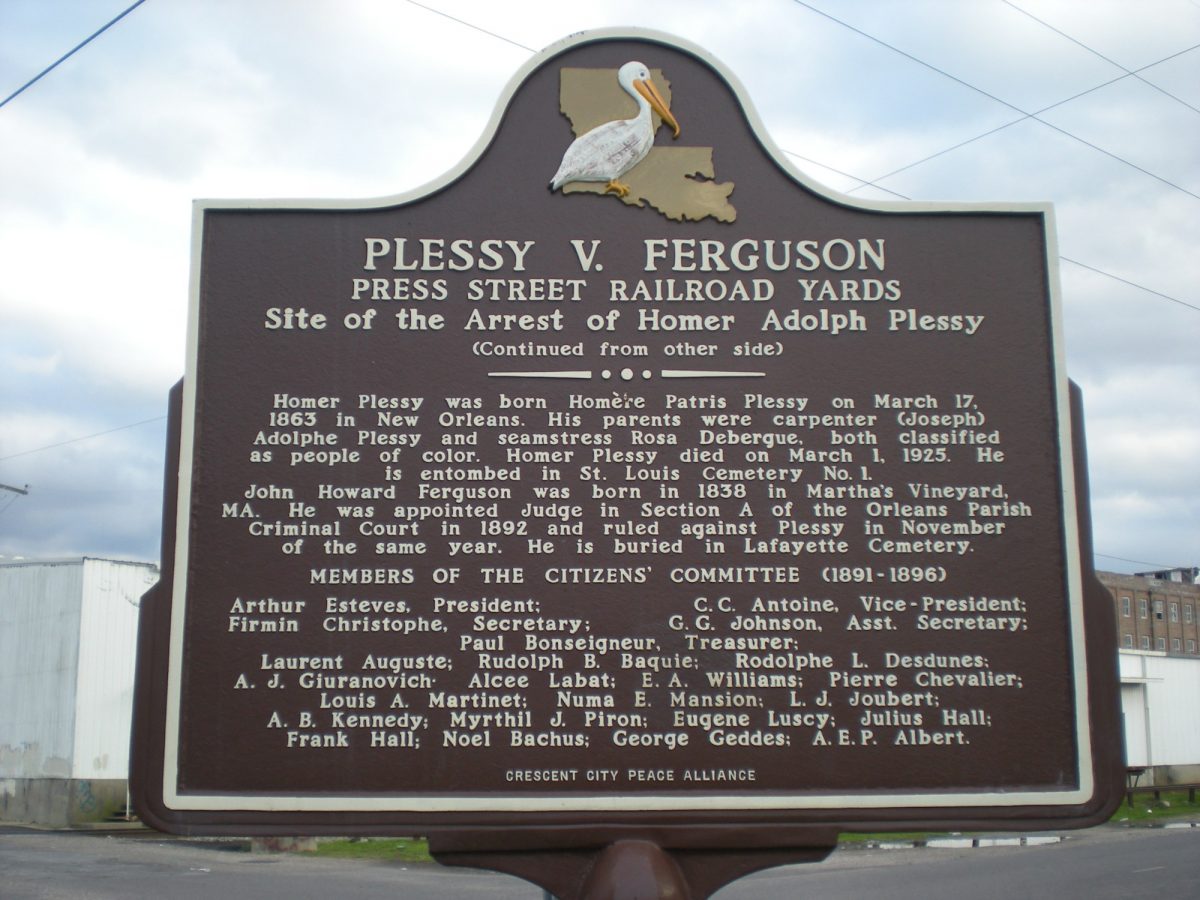Menu
Hot-Topics
February 19, 2026 | SCOTUS Reaffirms Fourth Amendment Standard for Police Responding to Household Emergencies
Category: Historical

McCulloch v. Maryland: The Necessary and Proper Clause
In McCulloch v. Maryland, the U.S. Supreme Court held that Congress has broad discretionary authority to implement the powers enumerated in the Constitution under the Necessary and Proper Clause. McCulloch v. Maryland, 17 U.S. 316 (1819) is reg...

Fletcher v. Peck and the Contract Clause
In Fletcher v. Peck, 10 U.S. 87 (1810), the Marshall Court ruled that an act of the Georgia State legislature that nullified a prior land grant they passed violated the U.S. Constitution. It was the first case in which the U. S. Supreme Court held...

Plessy v. Ferguson: The Supreme Court’s Most Notorious Decision
In 1896, the U.S. Supreme Court ruled that state laws establishing racial segregation did not violate the Fourteenth Amendment of the U.S. Constitution in the Plessy v. Ferguson case. The decision of Plessy v. Ferguson, 163 U.S. 537 (1896), which is...

Kansas v. Nebraska and Colorado: A Lesson in Original Jurisdiction
The U.S. Supreme Court recently heard oral arguments in Kansas v. Nebraska and Colorado, which involves a tri-state dispute over water rights to the Republican River. While the subject matter of the suit largely boils down to a very high-profile ...
Previous Articles
SCOTUS Decision in Bowe v. United States Is First of the 2026 Term
by DONALD SCARINCI on February 5, 2026
In Bowe v. United States, 607 U.S. ___ (2026), the U.S. Supreme Court held that Title 28 U.S.C. § ...
SCOTUS Rules State Can’t Immunize Parties from Federal Civil Liability
by DONALD SCARINCI on January 29, 2026
In John Doe v. Dynamic Physical Therapy, LLC, 607 U.S. ____ (2025) the U.S. Supreme Court held that...
Supreme Court to Address Racial Discrimination in Jury Selection
by DONALD SCARINCI onWhile the U.S. Supreme Court has concluded oral arguments for the year, it continues to add cases t...
The Amendments
-
Amendment1
- Establishment ClauseFree Exercise Clause
- Freedom of Speech
- Freedoms of Press
- Freedom of Assembly, and Petitition
-
Amendment2
- The Right to Bear Arms
-
Amendment4
- Unreasonable Searches and Seizures
-
Amendment5
- Due Process
- Eminent Domain
- Rights of Criminal Defendants
Preamble to the Bill of Rights
Congress of the United States begun and held at the City of New-York, on Wednesday the fourth of March, one thousand seven hundred and eighty nine.
THE Conventions of a number of the States, having at the time of their adopting the Constitution, expressed a desire, in order to prevent misconstruction or abuse of its powers, that further declaratory and restrictive clauses should be added: And as extending the ground of public confidence in the Government, will best ensure the beneficent ends of its institution.
Awards





